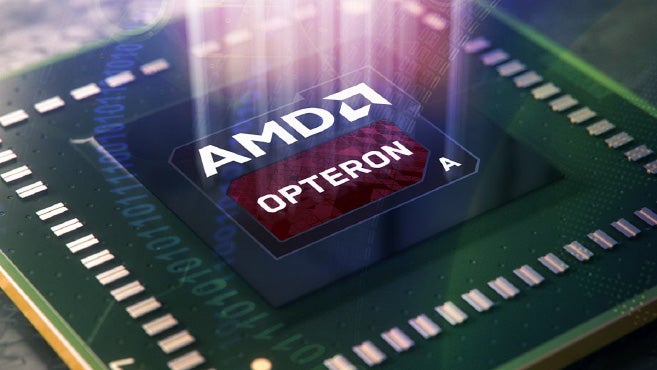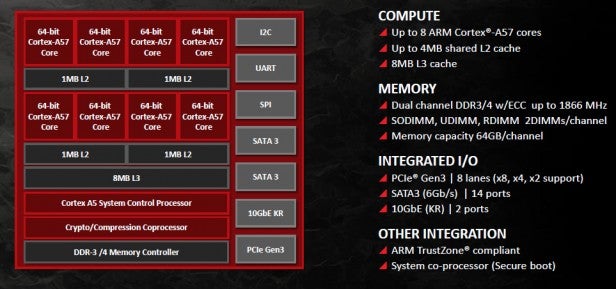AMD A1100 Opteron SoC brings ARM to the data centre

AMD has announced the A1100 Opteron System on a Chip, which combines ARM processing cores and AMD SoC expertise for low-power, highly parallel computing applications.
Designed for use in data-centres and other large, multi-system environments, it is the first 64-bit ARM Cortex-A57-based platform from AMD, having
announced its partnership with ARM back in 2014. Previously the chips had been codenamed Seattle.
The new chips include up to eight ARM Cortex-A57 cores with 4MB shared level 2 cache and 8MB of shared L3 cache. These are joined by a 2 x 64-bit DDR3/DDR4 memory controller, supporting up to 1866MHz ECC RAM, 2 x 1-Gb Ethernet controler, an eight lane PCI-E gen 3 interface and 14 SATA-3 ports.
All of this consumes no more than 25W or 32W, depending on the number of cores specified.
Related: AMD Radeon Software Crimson Edition
It’s all an attempt to get AMD and ARM more in the server and data-centre space where Intel has a huge stranglehold. However the applications for the low-power, highly-parallel design of the A1100 will be even more specialised.
AMD already has a few venders, though, including SoftIron, whose Overdrive3000 system is essentially a test environment for ARM developers.
“The secret of the AMD Opteron A1100 SoC’s appeal is not just the cores, it’s everything around the cores,” said Norman Fraser, CEO of SoftIron. “If you’ve got an application where you need to move large amounts of data around quickly, you’re going to love it.”
The A1100 SoCs are available immediately so expect more systems using the processor to be announced soon.

